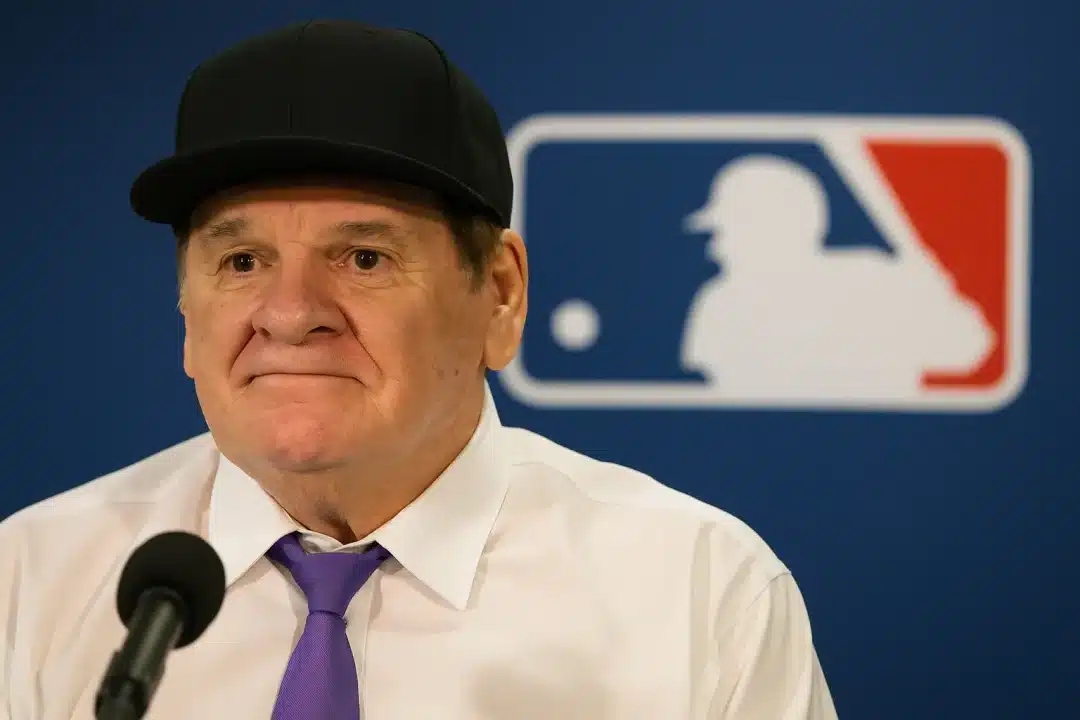In a stunning reversal, Major League Baseball (MLB) Commissioner Rob Manfred has reinstated Pete Rose, ending a 35-year ban that once seemed permanent. The decision, announced Monday, has reignited fierce debate over the league’s integrity, Manfred’s legacy, and the evolving attitudes toward sports betting.

Rose, baseball’s all-time hit leader with 4,256 career hits, was banned from the sport in 1989 after an investigation revealed he bet on games while managing the Cincinnati Reds.
Despite repeated denials, Rose later admitted to betting on baseball, leading to his permanent ineligibility from the Hall of Fame.
Why MLB Reversed Course on Pete Rose
Manfred’s decision comes after months of public and political pressure. Sources close to the league suggest former President Donald Trump played a behind-the-scenes role in lobbying for Rose’s reinstatement, framing it as a common-sense correction amid America’s growing embrace of legal sports gambling.
In a statement, Manfred acknowledged shifting societal views:
“Given the widespread legalization of sports betting and the changes in public perception, we believe it is time to reconsider Pete Rose’s eligibility.”
The commissioner also cited parallels to the recent push for Shoeless Joe Jackson’s reinstatement — another historic figure banned over gambling allegations. Jackson, who was implicated in the infamous 1919 Black Sox Scandal, was posthumously reinstated earlier this year, setting a precedent that Rose’s supporters seized upon.
Manfred’s Legacy Under Fire
While some hail the move as long overdue, critics argue that Manfred’s flip-flop undermines MLB’s longstanding stance on preserving the sport’s integrity.
Sports Illustrated slammed the decision, calling it a “stain” on Manfred’s legacy, while longtime baseball columnist Bob Nightengale described it as a “calculated move to salvage public favor” amid declining viewership and waning fan trust.
“Manfred’s tenure will now be remembered for eroding the moral clarity that once defined baseball’s rules,” Nightengale wrote.
Trump’s Influence and the Political Factor
Donald Trump’s involvement has added another layer of controversy. The president, who has publicly championed Rose’s cause since the 2024 campaign trail, celebrated the announcement with a social media post declaring:
“Pete Rose is an American icon. Justice is finally served. This is a huge win for the fans and for common sense.”
Trump’s political clout, combined with the booming sports betting industry, has made Rose’s reinstatement both a symbolic and pragmatic decision for MLB.
What’s Next for Pete Rose’s Legacy?
With his ban lifted, Rose is now eligible for induction into the National Baseball Hall of Fame. The Baseball Writers’ Association of America (BBWAA) has yet to announce if Rose will be added to the 2025 Hall of Fame ballot, but experts predict it’s only a matter of time.
For Rose, the reinstatement is vindication.
“It’s been a long road. I’ve made mistakes, but I’ve never stopped loving this game. I’m grateful for this second chance,” Rose said in an emotional press conference.
Baseball’s Gambling Dilemma: Hypocrisy or Evolution?
The reinstatement reignites the conversation about MLB’s relationship with gambling. With official partnerships with sportsbooks like DraftKings and FanDuel, critics argue the league’s once rigid anti-gambling stance has eroded for commercial gain.
However, supporters contend that Rose’s punishment no longer aligns with the current sports landscape, where betting is not only legal but celebrated.
Manfred concluded:
“We can honor baseball’s history while acknowledging how the world has changed.”
Bottom Line
Pete Rose’s reinstatement marks a watershed moment in MLB history, symbolizing both the sport’s evolution and the complex interplay of politics, public opinion, and financial interests.
As the Hall of Fame debates loom, Rose’s controversial legacy will once again take center stage — alongside Rob Manfred’s.
